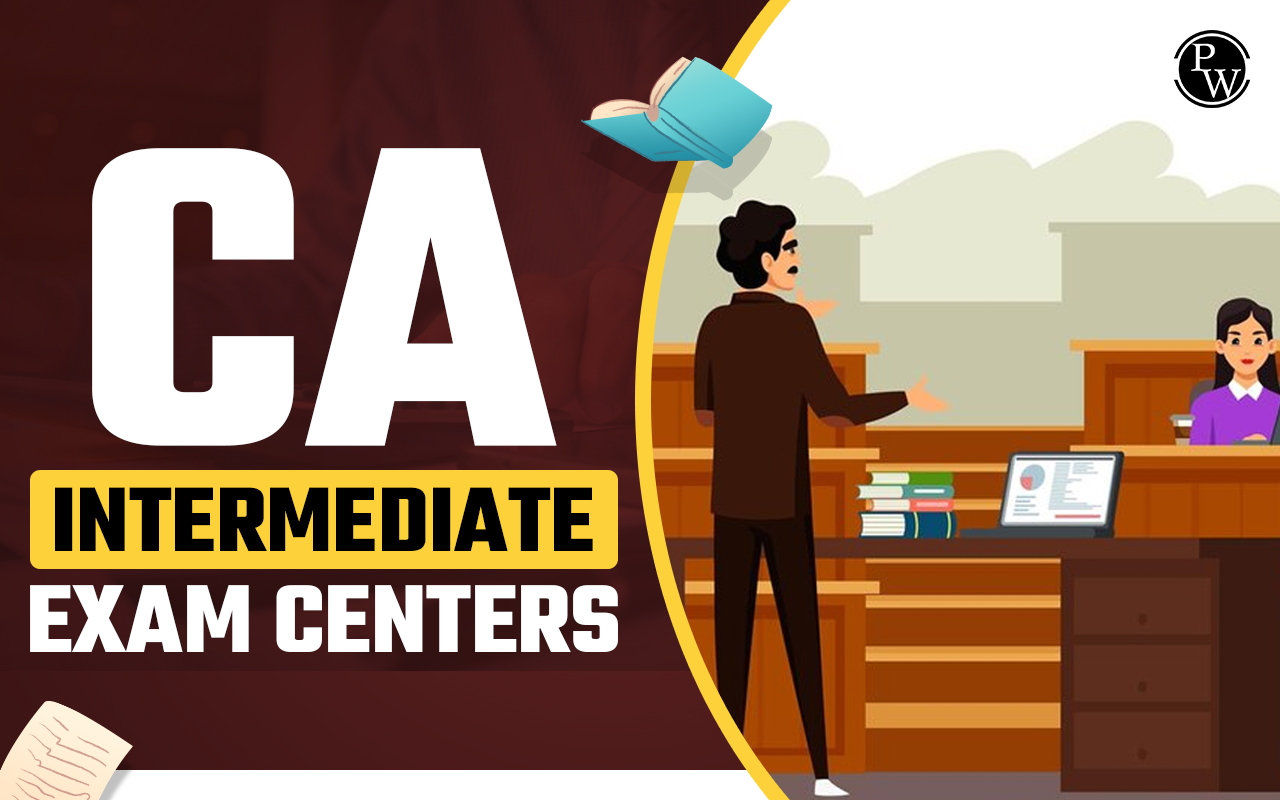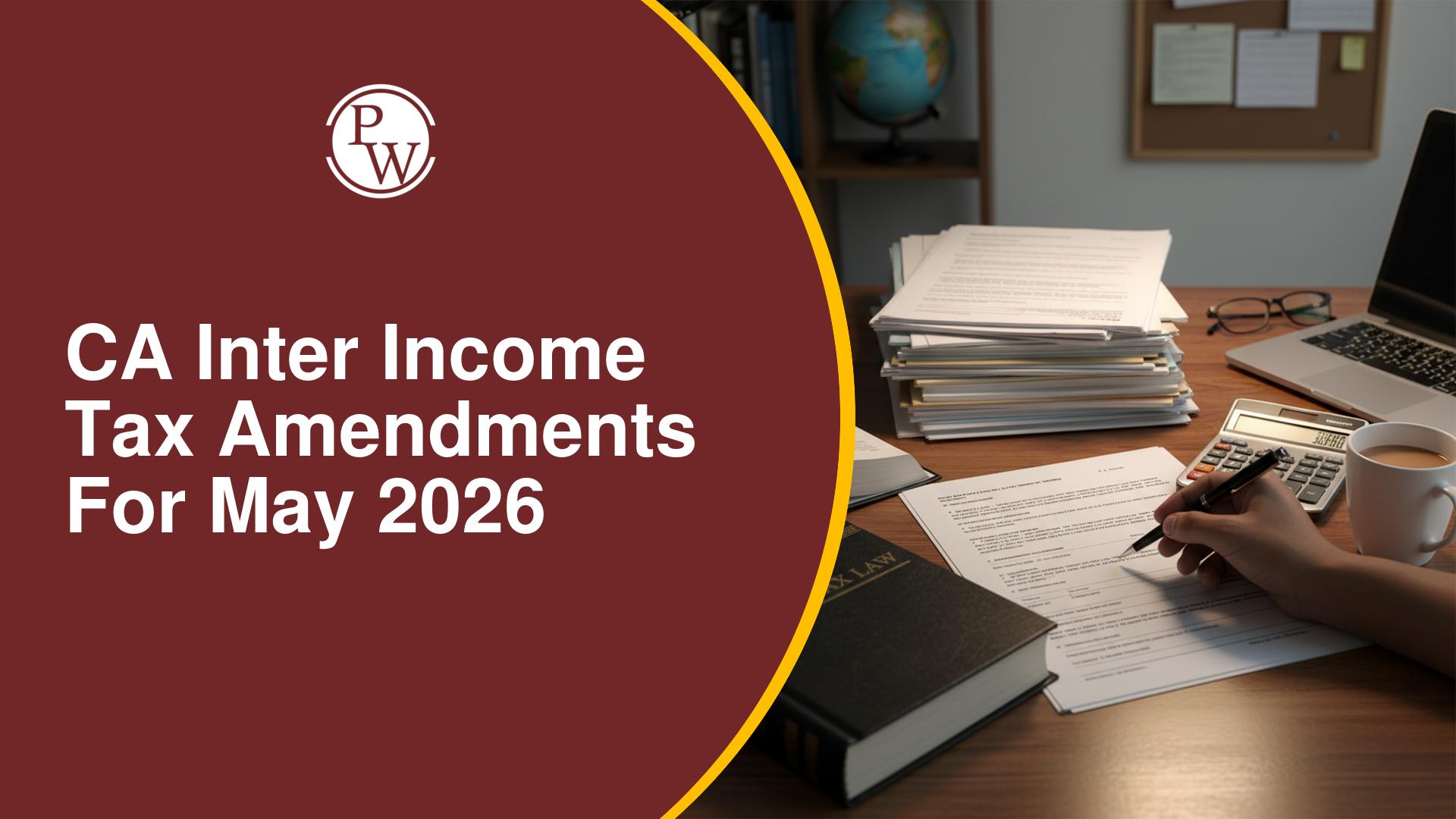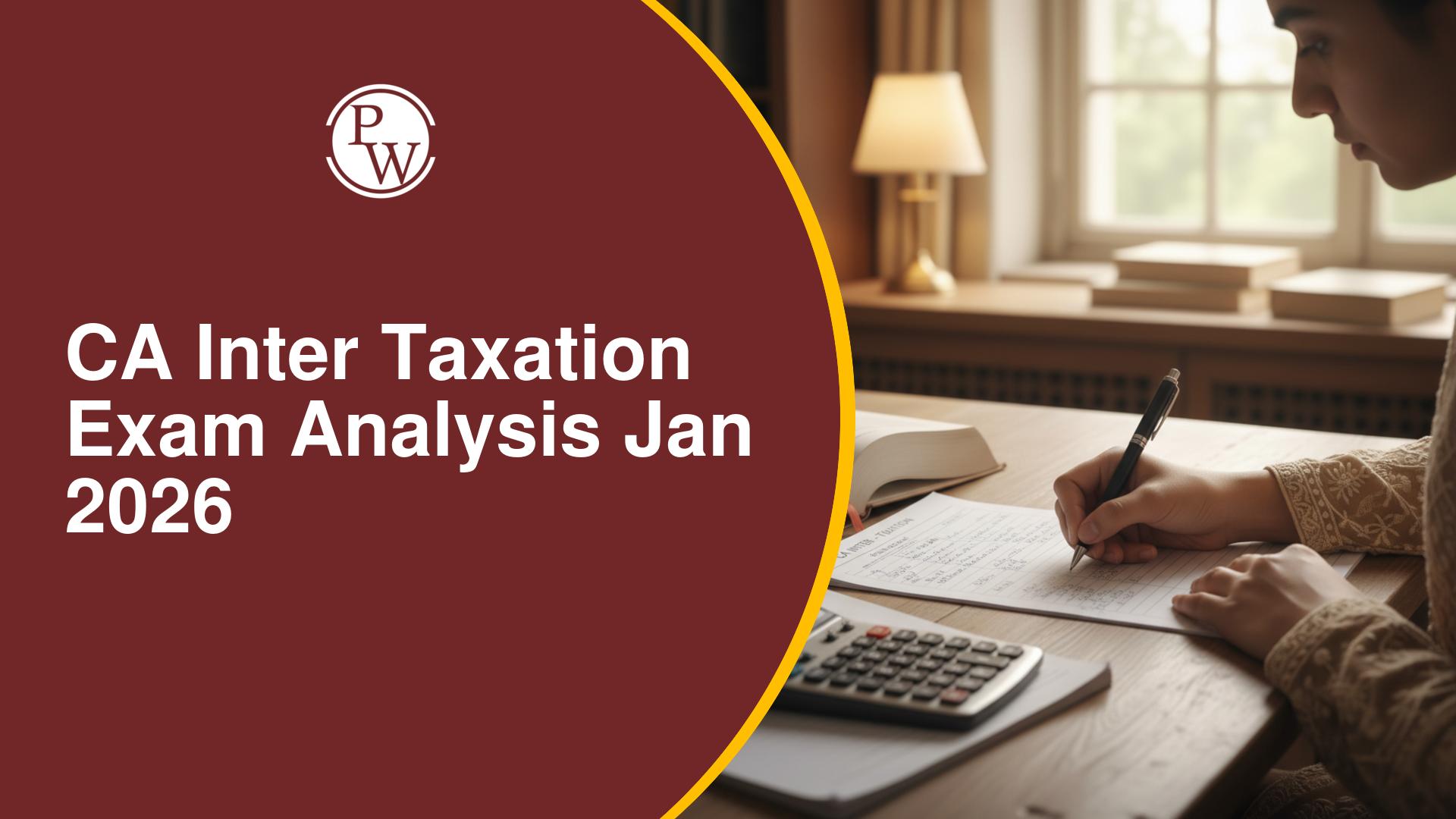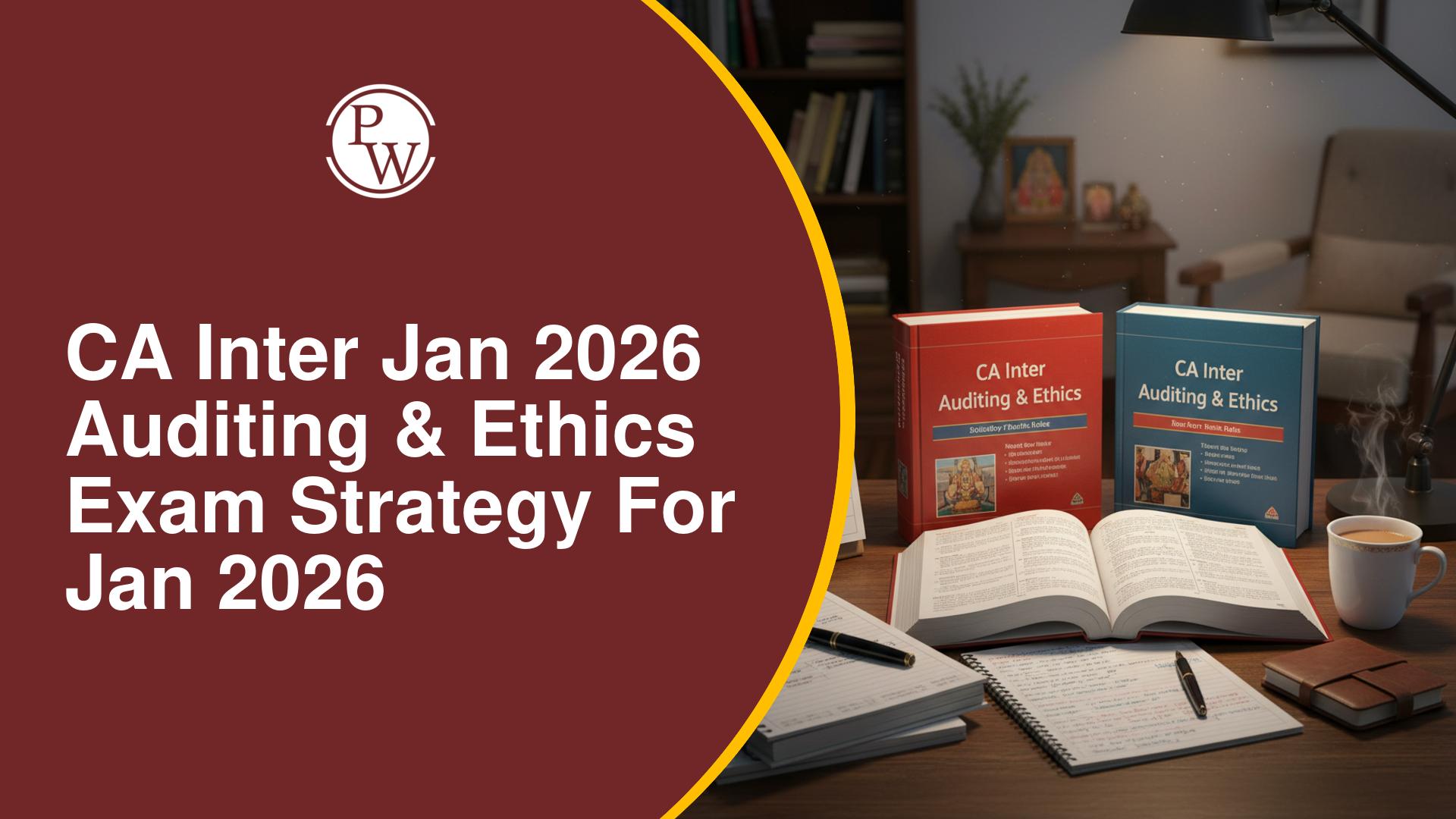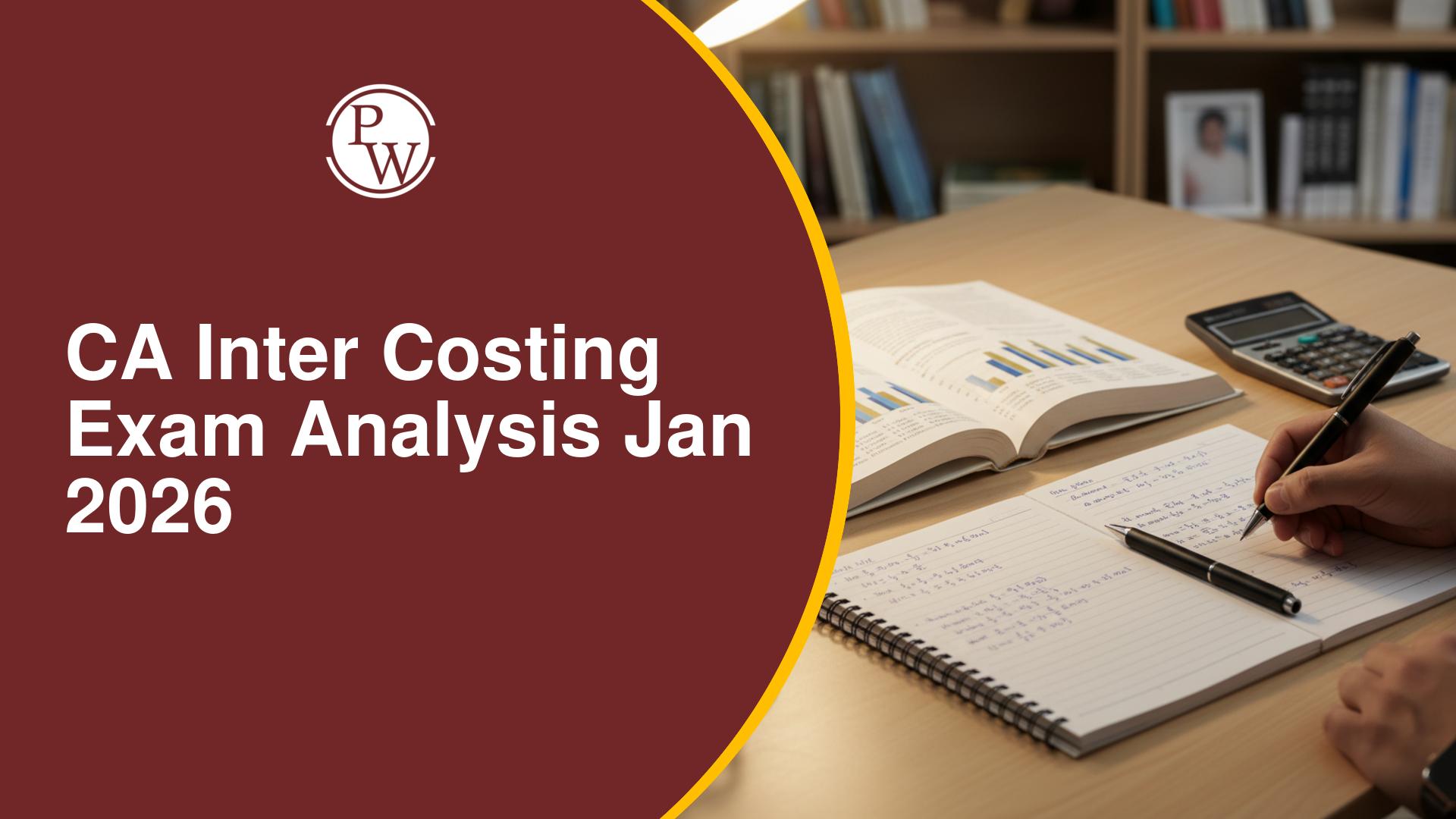
CA Intermediate Course Structure: ICAI has released the CA Intermediate course syllabus on its official website. CA Inter aspirants have to cover topics such as business laws, accounting, taxation, auditing, and financial management to strengthen their preparation. The CA Intermediate course structure is categorised in two groups - Group 1 and Group 2, each comprising multiple modules.
To progress to CA Final, students need to follow a dedicated strategic preparation. Previous years trends of CA Inter exam shows that only a few candidates clear the exam in their first attempt. As the difficulty level of CA Inter is high, it is crucial to know the syllabus topics and focus on mastering each chapter.
CA Intermediate Course Structure Overview
The CA Intermediate course was updated by ICAI in 2023. From May 2024, the exam included nearly 30% MCQs across all six papers. Presented below are the highlights of the CA Intermediate course structure:
|
CA Intermediate Course Structure Overview |
|||
|
Group |
Paper |
Subject |
Sections |
|
Group 1 |
Paper 1 |
Advanced Accounting |
- |
|
Paper 2 |
Corporate and Other Laws |
Par 1: Company Law and Limited Liability Partnership Law Part 2: Other Laws |
|
|
Paper 3 |
Taxation |
Section A: Income Tax Law Section B: Goods & Services Tax |
|
|
Group 2 |
Paper 4 |
Cost and Management Accounting |
- |
|
Paper 5 |
Auditing and Ethics |
- |
|
|
Paper 6 |
Financial Management & Ethics Management |
Section A: Financial Management Section B: Ethics Management |
|
CA Intermediate Course Weightage
The CA Inter assessment framework includes both descriptive and objective questions across all papers. Before the May 2024 exams, only descriptive questions were asked in this exam. Each paper carries a total score allocation of 100 marks.
According to the revised evaluation system, descriptive questions constitute 70% of the total assessment, while objective questions account for the remaining 30%. This balanced approach aims at testing both comprehensive understanding and quick analytical skills of students.
The examination format allows flexible time management between question categories. Presented below is the section-wise weightage of each CAT Inter paper:
|
CA Inter Course Weightage |
|||
|
Paper |
Total Marks |
||
|
Advanced Accounting |
100 |
||
|
Corporate Law |
Company Law and Limited Liability Partnership Law |
70 marks |
100 |
|
Other Laws |
30 marks |
||
|
Taxation |
Income Tax Law |
50 marks |
100 |
|
Goods & Services Tax |
50 marks |
||
|
Cost and Management Accounting |
100 |
||
|
Audit and Code Ethics |
100 |
||
|
Financial and Strategic Management |
Financial Management |
50 marks |
100 |
|
Ethics Management |
50 marks |
||
CA Intermediate Course Structure: Paper 1 Advanced Accounting
The Advanced Accounting is the most crucial paper of CA Inter Group I exam. It comprises a comprehensive study of modern accounting principles and corporate financial reporting standards. The topics of Advanced Accounting are strategically organised into 15 chapters, each designed to strengthen students’ expertise in advanced accounting concepts and practical applications.
Here is the detailed breakdown of the CA Inter Advanced Accounting course structure:
|
CA Intermediate Advanced Accounting Course Structure |
||
|
Module |
Chapter |
Topics |
|
Module 1 |
1 |
Introduction to Accounting Standards |
|
2 |
Framework for Preparation and Presentation of Financial Statements |
|
|
3 |
Applicability of Accounting Standards |
|
|
4 |
Presentation & Disclosures Based Accounting Standards |
|
|
Module 2 |
5 |
Assets Based Accounting Standards |
|
6 |
Liabilities Based Accounting Standards |
|
|
7 |
Accounting Standards Based on Items Impacting Financial Statement |
|
|
8 |
Revenue Based Accounting Standards |
|
|
9 |
Other Accounting Standards |
|
|
10 |
Accounting Standards for Consolidated Financial Statement |
|
|
Module 3 |
11 |
Financial Statements of Companies |
|
12 |
Buyback of Securities |
|
|
13 |
Amalgamation of Companies |
|
|
14 |
Accounting for Reconstruction of Companies |
|
|
15 |
Accounting for Branches including Foreign Branches |
|
CA Intermediate Course Structure: Paper 2 Corporate and Other Laws
The Corporate and Other Laws examination evaluates students' understanding of fundamental legal principles and their practical application in business. Its curriculum is divided into two primary sections, each containing various chapters.
The table below shadows the topics covered in Part 1 and Part 2 of the CA Inter Corporate and Other Laws paper:
|
CA Intermediate Corporate and Other Laws Course Structure |
|||
|
Part |
Module |
Chapter |
Topic |
|
Part 1 |
Module 1 |
Chapter 1 |
Preliminary |
|
Chapter 2 |
Incorporation of Company and Matters Incidental Thereto |
||
|
Chapter 3 |
Prospectus and Allotment of Securities |
||
|
Chapter 4 |
Share Capital and Debentures |
||
|
Chapter 5 |
Acceptance of Deposits by Companies |
||
|
Chapter 6 |
Registration of Charges |
||
|
Module 2 |
Chapter 7 |
Management & Administration |
|
|
Chapter 8 |
Declaration and Payment of Dividend |
||
|
Chapter 9 |
Accounts of Companies |
||
|
Chapter 10 |
Audit and Auditors |
||
|
Chapter 11 |
Companies Incorporated Outside India |
||
|
Module 3 |
Chapter 12 |
The Limited Liability Partnership Act, 2008 |
|
|
Part 2 |
Other Laws |
Chapter 1 |
The General Clauses Act, 1897 |
|
Chapter 2 |
Interpretation of Statutes |
||
|
Chapter 3 |
The Foreign Exchange Management Act, 1999 |
||
CA Intermediate Course Structure: Paper 3 Taxation
The third paper in the CA Intermediate curriculum focuses exclusively on taxation principles and practices. This is one of the most practical and application-oriented subjects in the program. The Taxation course includes two sections, Income Tax laws and Goods and Services Tax. The section-wise course curriculum of the CA Inter Taxation paper is as follows:
|
CA Intermediate Taxation Course Structure |
||
|
Section A Income Tax Laws |
||
|
Module |
Section |
Chapter/Component |
|
Module 1 |
Section 1 |
Overview, Scenario, Crossword Puzzle |
|
Chapter 1: Basic Concepts |
||
|
Chapter 2: Residence and Scope of Total Income |
||
|
Section 2 |
Overview, Scenario, Crossword Puzzle |
|
|
Chapter 3: Heads of Income |
||
|
Module 2 |
Section 3 |
Chapter 4: Income of Other Persons included in Assessee's Total Income |
|
Chapter 5: Aggregation of Income, Set-Off and Carry Forward of Losses |
||
|
Chapter 6: Deductions from Gross Total Income |
||
|
Section 4 |
Chapter 7: Advance Tax, Tax Deduction at Source and Tax Collection at Source |
|
|
Chapter 8: Provisions for filing Return of Income and Self Assessment |
||
|
Section 5 |
Chapter 9: Income Tax Liability – Computation and Optimisation |
|
|
Section B Goods and Services Tax |
||
|
Module |
Chapter |
Topic |
|
Module 1 |
Chapter 1 |
GST in India – An Introduction |
|
Chapter 2 |
Supply under GST |
|
|
Chapter 3 |
Charge of GST |
|
|
Chapter 4 |
Place of Supply |
|
|
Chapter 5 |
Exemptions from GST |
|
|
Chapter 6 |
Time of Supply |
|
|
Chapter 7 |
Value of Supply |
|
|
Module 2 |
Chapter 8 |
Input Tax Credit |
|
Chapter 9 |
Registration |
|
|
Chapter 10 |
Tax Invoice; Credit and Debit Notes |
|
|
Chapter 11 |
Accounts and Records |
|
|
Chapter 12 |
E-Way Bill |
|
|
Chapter 13 |
Payment of Tax |
|
|
Chapter 14 |
Tax Deduction at Source and Collection of Tax at Source |
|
|
Chapter 15 |
Returns |
|
CA Intermediate Course Structure: Paper 4 Cost and Management Accounting
CA Inter Paper 4 focuses on cost analysis and managerial decision-making. This subject covers a total of 15 chapters grouped across two modules. The curriculum design facilitates progressive skill development, moving from elementary cost concepts to advanced management accounting applications across various business environments.
Here is the revised course structure of CA Inter Cost Management Accounting:
|
CA Intermediate Cost Management Accounting Course Structure |
||
|
Module |
Chapter |
Topic |
|
Module 1 |
Chapter 1 |
Introduction to Cost and Management Accounting |
|
Chapter 2 |
Material Cost |
|
|
Chapter 3 |
Employee Cost and Direct Expenses |
|
|
Chapter 4 |
Overheads – Absorption Costing Method |
|
|
Chapter 5 |
Activity Based Costing |
|
|
Chapter 6 |
Cost Sheet |
|
|
Chapter 7 |
Cost Accounting Systems |
|
|
Module 2 |
Chapter 8 |
Unit & Batch Costing |
|
Chapter 9 |
Job Costing |
|
|
Chapter 10 |
Process & Operation Costing |
|
|
Chapter 11 |
Joint Products and By Products |
|
|
Chapter 12 |
Service Costing |
|
|
Chapter 13 |
Standard Costing |
|
|
Chapter 14 |
Marginal Costing |
|
|
Chapter 15 |
Budgets and Budgetary Control |
|
CA Intermediate Course Structure: Paper 5 Auditing & Ethics
The Auditing & Ethics paper is crucial for developing professional competency in the CA Intermediate program. This subject prepares future auditing professionals through comprehensive coverage of audit methodology, specialised sector knowledge, and ethical considerations.
The educational structure follows a progressive learning system comprising two modules. The paper includes 11 chapters that transition from fundamental audit concepts to advanced professional applications and ethical standards.
Presented below is the detailed breakdown of the CA Inter Auditing and Ethics course curriculum:
|
CA Intermediate Auditing & Ethics Course Structure |
||
|
Module |
Chapter |
Topic |
|
Module 1 |
Chapter 1 |
Nature, Objective and Scope of Audit |
|
Chapter 2 |
Audit Strategy, Audit Planning and Audit Programme |
|
|
Chapter 3 |
Risk Assessment and Internal Control |
|
|
Chapter 4 |
Audit Evidence |
|
|
Chapter 5 |
Audit of Items of Financial Statements |
|
|
Module 2 |
Chapter 6 |
Audit Documentation |
|
Chapter 7 |
Completion and Review |
|
|
Chapter 8 |
Audit Report |
|
|
Chapter 9 |
Special Features of Audit of Different Type of Entities |
|
|
Chapter 10 |
Audit of Banks |
|
|
Chapter 11 |
Ethics and Terms of Audit Engagements |
|
CA Intermediate Course Structure: Paper 6 Financial Management and Strategic Management
Paper 6 of CA Intermediate is the most important management subject. The topics covered in this paper are crucial to strengthen students’ financial decision-making with strategic business planning. The following table includes section-wise topics of Financial Management and Strategic Management:
|
CA Intermediate Financial Management Course Structure (Section A) |
||
|
Module |
Chapter |
Title |
|
Module 1 |
Chapter 1 |
Scope and Objectives of Financial Management |
|
Chapter 2 |
Types of Financing |
|
|
Chapter 3 |
Financial Analysis and Planning – Ratio Analysis |
|
|
Chapter 4 |
Cost of Capital |
|
|
Chapter 5 |
Financing Decisions – Capital Structure |
|
|
Chapter 6 |
Financing Decisions – Leverages |
|
|
Module 2 |
Chapter 7 |
Investment Decisions |
|
Chapter 8 |
Dividend Decision |
|
|
Chapter 9 |
Management of Working Capital |
|
|
CA Intermediate Strategic Management Course Structure (Section B) |
||
|
Chapter |
Topic |
|
|
1 |
Introduction to Strategic Management |
|
|
2 |
Strategic Analysis: External Environment |
|
|
3 |
Strategic Analysis: Internal Environment |
|
|
4 |
Strategic Choices |
|
|
5 |
Strategy Implementation and Evaluation |
|
CA Intermediate Course Structure FAQs
What is the structure of CA Intermediate?
What are the subjects in Group 1 and Group 2 of CA Inter?
Which is the toughest paper in CA Inter?
How many attempts to clear CA Intermediate?


